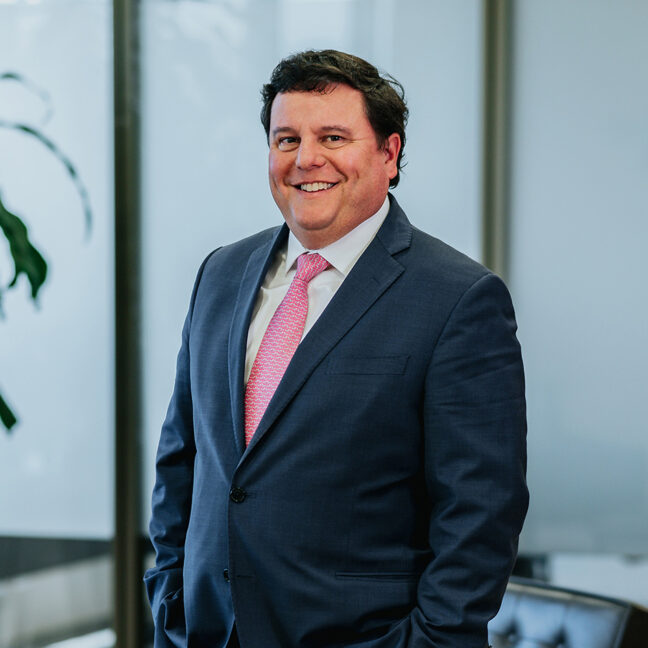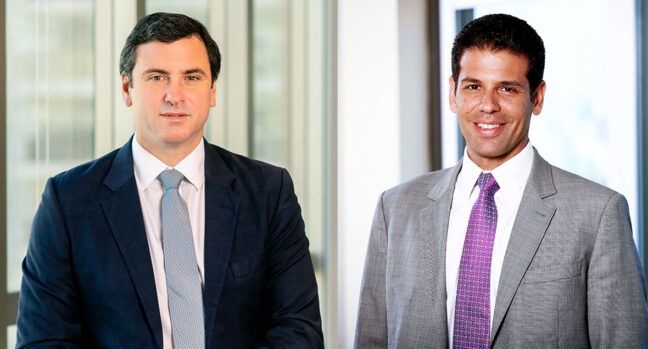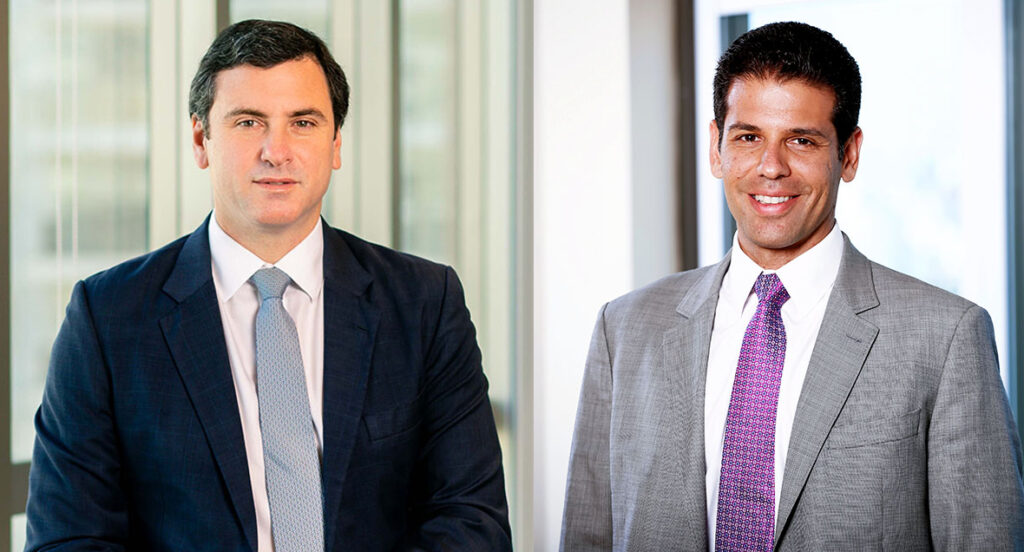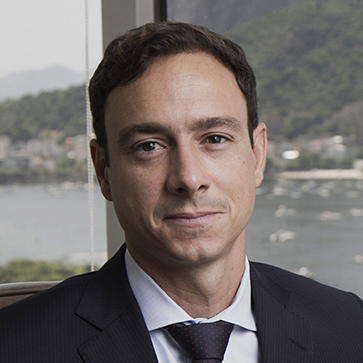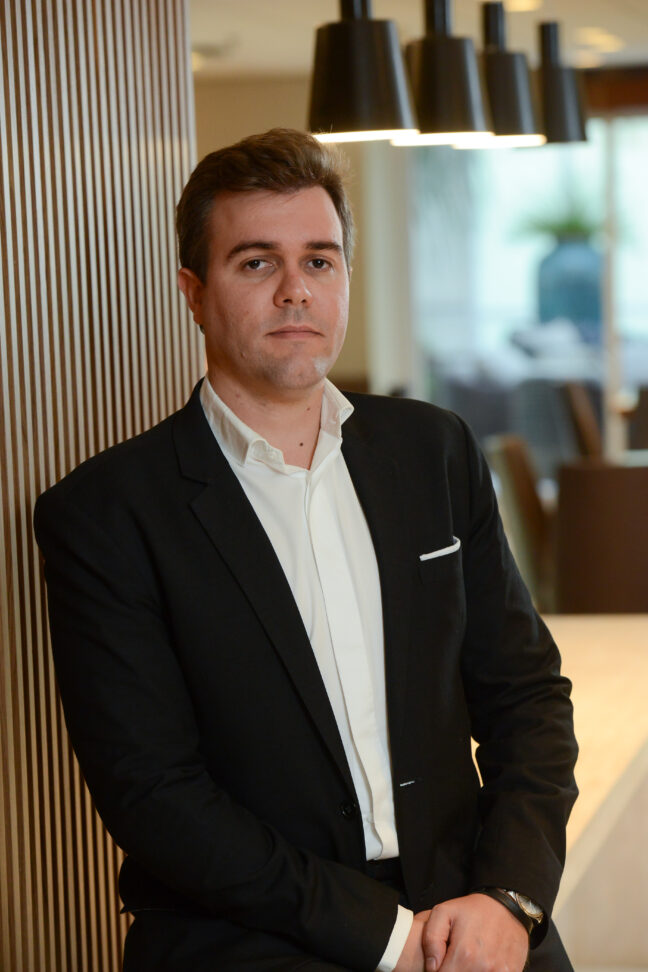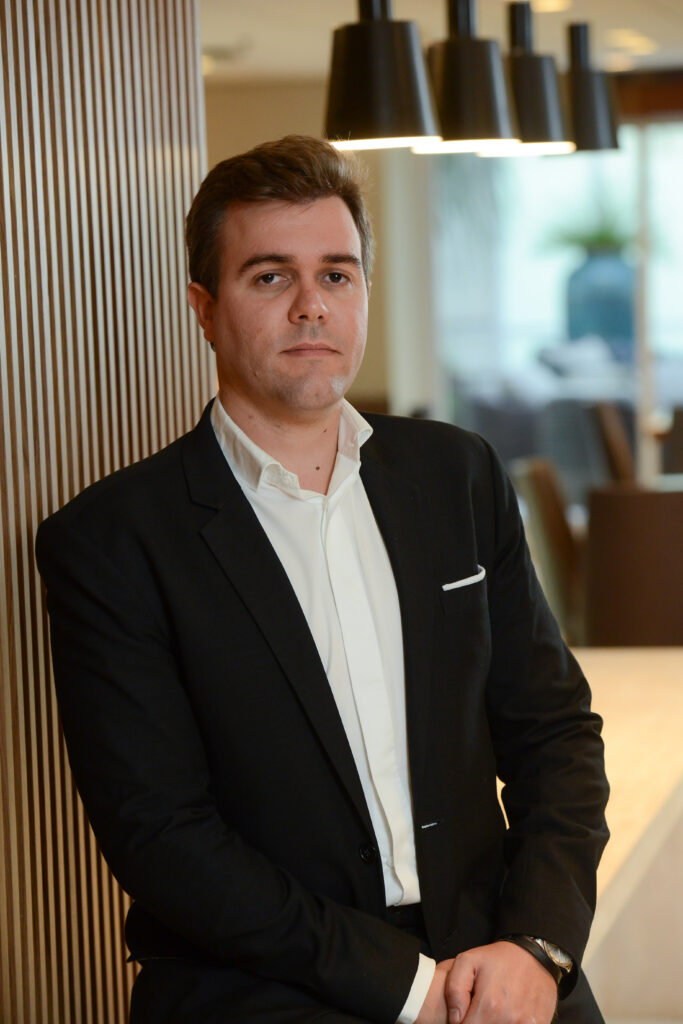Content available in English and Portuguese (scroll down)
TTR Dealmaker Q&A with Demarest Advogados Partner José Setti Diaz

Partner of the Demarest’s Mergers and Acquisitions and International and Customs Trade areas, José Setti Diaz holds a master’s degree in Law from USP’s Faculty of Law. Among his main clients are the Harvard University fund, the Private Equity fund Vinci Partners and important domestic and multinational companies operating in the agribusiness, auto parts, forestry, paper and pulp, chemical and retail sectors. José Diaz is also the Chief Financial Officer of CESA, a member of the International Chamber of Commerce (ICC), a member of the Board of Directors of Britcham and a member of the panel of Brazilian panelists for the WTO.
TTR: What are your main conclusions for the M&A market in 1H22?
We saw a negative impact on the volume of M&A transactions resulting from a general reduction in global liquidity following on from the end of last year. Specifically for Brazil, we also believe that the continued increase in Brazilian interest rates and the closing of equity markets since the third quarter of 2021 have also affected the volume of deals carried out through the period. Upcoming Brazilian general elections and the continuous volatility of the exchange rate also add to the uncertainty for private equity investment and other relevant players. Notwithstanding these factors, however, we saw a fair volume of deals being completed at a reasonable pace in strategic sectors for Brazil and continue to see a strong pipeline of deals to come.
TTR: What are the most relevant drivers for consolidating the M&A market in Brazil, in 2H22?
We believe that the M&A market in Brazil will continue to be relevant given the multiplicity of factors that the country presents for consolidation. First, certain sectors will continue to be strategic as a result of global demand for commodities (oil and gas, food, agriculture, pulp, minerals and others). Second, the stage of consolidation of certain sectors like education, health, retail and others is still relatively low. Third, tech and innovation is very strong in the country. Fourth, despite upcoming elections, the government is still pushing for private investments to play an important role in different heavy infrastructure plays (energy, airports, roads, ports, railway, telecommunications and sanitation) as well as smart city plays (public lighting, public transportation, tech-related infrastructure). Lastly, many Brazilian companies still have to undergo a succession process that is likely to require an M&A process in one form or another.
TTR: In which sectors might international investors find the biggest opportunities in Brazil? Why?
All sectors in which Brazil has proven in the last years to have a high demand for deals present interesting opportunities for local and international players: oil and gas, food, agriculture, pulp, minerals and other commodities, education, health, retail, tech and innovation, heavy infrastructure (airports, roads, ports, railway, telecommunications and sanitation) and smart city-related infrastructure projects (public lighting, public transportation, tech-related infrastructure). Assuming that, following the elections in October, there could be potential for the Brazilian interest rate to be reduced again, the sectors among those listed that will benefit most from increased availability of funds are likely to be those attracting more investment in the 2H22 and 1H23.
TTR: Demarest Advogados has been one of the leading advisors in renewable energy operations in Brazil. What will be the prospects for this sector in the medium and long term?
Renewable energy operations will continue to attract a lot of interest from investors due to Brazil’s demand for energy and, despite some regulatory instability, the demand for clean energy and ESG-related opportunities will continue to grow at a rapid pace.
TTR: What will Demarest Advogados main challenges be in terms of M&A deals in Brazil during 2H22?
We need to be close to clients to help them navigate these times of uncertainty and volatility. We have been focusing ourselves in providing innovative legal solutions to enable clients to continue to deliver on their expected results. Our recognized strengths in the selected sectors that are expected to continue to attract investment during 2H22 will provide us with the necessary tools to face the challenges that M&A deals are likely to present.
Sócio das áreas de Fusões e Aquisições e Comércio Internacional e Aduaneiro do Demarest, José Setti Diaz é mestre em Direito pela Faculdade de Direito da USP. Dentre seus principais clientes estão o fundo da Universidade de Harvard, o fundo de Private Equity Vinci Partners e importantes empresas nacionais e multinacionais com atuação nos setores de agronegócios, autopeças, florestal, papel e celulose, químico e varejo. José Diaz também é Diretor Financeiro Administrativo do CESA, membro do International Chamber of Commerce – Commission on Trade and Investment Policy (ICC), membro do Conselho de Administração da Britcham e faz parte da lista de painelistas brasileiros para a OMC.
TTR: Quais são suas principais conclusões para o mercado de M&A no primeiro semestre de 2022?Vimos um impacto negativo no volume de transações de M&A, resultante de uma redução geral da liquidez global após o final do ano passado. Especificamente para o Brasil, também acreditamos que o aumento contínuo das taxas de juros brasileiras e o fechamento dos mercados acionários a partir do terceiro trimestre de 2021 também afetaram o volume de negócios realizados ao longo do período. As próximas eleições gerais brasileiras e a contínua volatilidade da taxa de câmbio também aumentam a incerteza para o investimento em private equity e outros atores relevantes. Apesar desses fatores, no entanto, vimos um volume justo de negócios sendo concluídos em um ritmo razoável em setores estratégicos para o Brasil e continuamos a ver um forte pipeline de negócios por vir.
TTR: Quais são os fatores mais relevantes para a consolidação do mercado de M&A no Brasil no segundo semestre de 2022?
Acreditamos que o mercado de M&A no Brasil continuará sendo relevante dada a multiplicidade de fatores que o país apresenta para consolidação. Em primeiro lugar, alguns setores continuarão a ser estratégicos, como resultado da demanda global por commodities (petróleo e gás, alimentos, agricultura, celulose, minerais e outros). Em segundo lugar, a etapa de consolidação de certos setores como educação, saúde, varejo e outros ainda é relativamente baixa. Em terceiro lugar, tecnologia e inovação é muito forte no país. Em quarto lugar, apesar das próximas eleições, o governo ainda está pressionando para que os investimentos privados desempenham um papel importante em diferentes peças de infraestrutura pesada (energia, aeroportos, estradas, portos, ferrovias, telecomunicações e saneamento), bem como peças de cidades inteligentes (iluminação pública, transporte público, infraestrutura relacionada à tecnologia). Por fim, muitas empresas brasileiras ainda precisam passar por um processo sucessório que provavelmente exigirá um processo de M&A de uma forma ou de outra.
TTR: Em quais setores os investidores internacionais podem encontrar as maiores oportunidades no Brasil? Por quê?
Todos os setores em que o Brasil provou nos últimos anos ter uma alta demanda por negócios apresentam oportunidades interessantes para atores locais e internacionais: petróleo e gás, alimentos, agricultura, celulose, minerais e outras commodities, educação, saúde, varejo, tecnologia e inovação, infraestrutura pesada (aeroportos, estradas, portos, ferrovias, telecomunicações e saneamento) e projetos inteligentes de infraestrutura relacionada à cidade (iluminação pública, transporte público, infraestrutura relacionada à tecnologia). Supondo que, após as eleições de outubro, possa haver potencial para que a taxa de juros brasileira seja reduzida novamente, os setores entre os listados que mais se beneficiarão do aumento da disponibilidade de recursos provavelmente serão aqueles que mais atraem investimentos nos 2S22 (segundo semestre de 2022) e 1S23 (1º semestre de 2023).
TTR: Demarest Advogados é um dos principais assessores em operações de energia renovável no Brasil. Quais são as perspectivas desse setor no médio e longo prazo?
As operações de energia renovável continuarão a atrair muito interesse dos investidores devido à demanda brasileira por energia e, apesar de alguma instabilidade regulatória, a demanda por energia limpa e oportunidades relacionadas ao ESG continuará a crescer rapidamente.
TTR: Quais serão os principais desafios para o Demarest Advogados em termos de operações de M&A na região nos próximos meses?
Precisamos estar perto dos clientes para ajudá-los a navegar nesses tempos de incerteza e volatilidade. Estamos nos concentrando em fornecer soluções legais inovadoras para permitir que os clientes continuem a entregar seus resultados esperados. Nossos pontos fortes reconhecidos nos setores selecionados que devem continuar a atrair investimentos durante o 2S22 (segundo semestre de 2022) nos fornecerão as ferramentas necessárias para enfrentar os desafios que os negócios de M&A provavelmente apresentarão.
